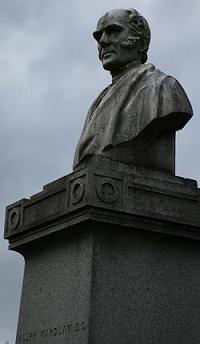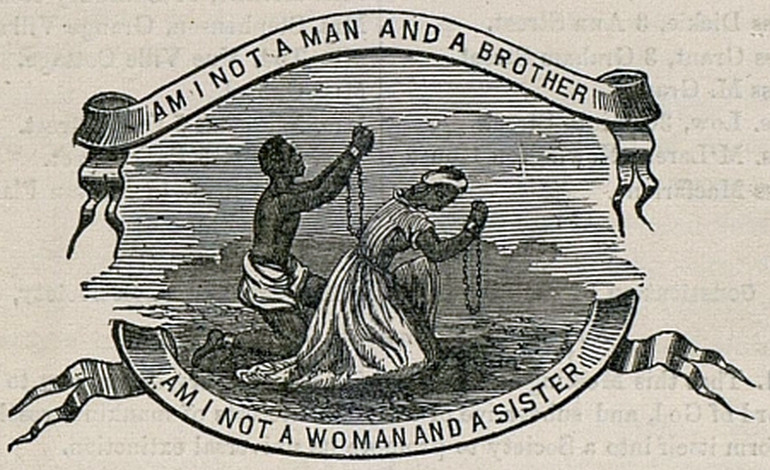|
Glasgow Emancipation Society
The Glasgow Emancipation Society was a group of Glaswegians who formed an anti-slavery abolitionist group in 1833. Prominent members included James McCune Smith, John Murray, William Smeal, Ralph Wardlaw, Anthony Wigham and Hugh Heugh. There was also a Glasgow Ladies' Emancipation Society and in 1833 there was an Edinburgh Emancipation Society and in time an Edinburgh Ladies' Emancipation Society. The British and American abolitionist movements split over with the beliefs of William Lloyd Garrison who advocated the immediate release of American slaves. This society like Bristol, Edinburgh, Dublin, Bristol, and Clifton were strong supporters whilst other groups favoured a managed move away from slavery.Introduction , C. Peter Ripley, University of North Carolina See also *[...More Info...] [...Related Items...] OR: [Wikipedia] [Google] [Baidu] |
William Smeal
William Smeal (1792–1877) was a grocer and an abolitionist Quaker from Glasgow. Life William Smeal was born in 1792. He and his brother James were both grocers and were active in the anti-slavery movement in Scotland. The Glasgow Story, accessed September 2012 He is credited with founding the Glasgow Anti-Slavery Society, forerunner of the , in 1822.Women on the Pl ... [...More Info...] [...Related Items...] OR: [Wikipedia] [Google] [Baidu] |
Slavery
Slavery and enslavement are both the state and the condition of being a slave—someone forbidden to quit one's service for an enslaver, and who is treated by the enslaver as property. Slavery typically involves slaves being made to perform some form of work while also having their location or residence dictated by the enslaver. Many historical cases of enslavement occurred as a result of breaking the law, becoming indebted, or suffering a military defeat; other forms of slavery were instituted along demographic lines such as race. Slaves may be kept in bondage for life or for a fixed period of time, after which they would be granted freedom. Although slavery is usually involuntary and involves coercion, there are also cases where people voluntarily enter into slavery to pay a debt or earn money due to poverty. In the course of human history, slavery was a typical feature of civilization, and was legal in most societies, but it is now outlawed in most countries of the w ... [...More Info...] [...Related Items...] OR: [Wikipedia] [Google] [Baidu] |
Abolitionism In The United Kingdom
Abolitionism in the United Kingdom was the movement in the late 18th and early 19th centuries to end the practice of slavery, whether formal or informal, in the United Kingdom, the British Empire and the world, including ending the Atlantic slave trade. It was part of a wider abolitionism movement in Western Europe and the Americas. The buying and selling of slaves was made illegal across the British Empire in 1807, but owning slaves was permitted until it was outlawed completely in 1833, beginning a process where from 1834 slaves became indentured "apprentices" to their former owners until emancipation was achieved for the majority by 1840 and for remaining exceptions by 1843. Former slave owners received formal compensation for their losses from the British government, known as compensated emancipation. Origins In the 17th and early 18th centuries, English Quakers and a few evangelical religious groups condemned slavery (by then applied mostly to Africans) as un-Christian. ... [...More Info...] [...Related Items...] OR: [Wikipedia] [Google] [Baidu] |
James McCune Smith
James McCune Smith (April 18, 1813 – November 17, 1865) was an American physician, apothecary, abolitionist, and author who was born in Manhattan. He was the first African American to hold a medical degree from the University of Glasgow in Scotland. After his return to the United States, he became the first African American to run a pharmacy in the nation. In addition to practicing as a physician for nearly 20 years at the Colored Orphan Asylum in Manhattan, Smith was a public intellectual: he contributed articles to medical journals, participated in learned societies, and wrote numerous essays and articles drawing from his medical and statistical training. He used his training in medicine and statistics to refute common misconceptions about race, intelligence, medicine, and society in general. Invited as a founding member of the New York Statistics Society in 1852, which promoted a new science, he was elected as a member in 1854 of the recently founded American Geographic Soc ... [...More Info...] [...Related Items...] OR: [Wikipedia] [Google] [Baidu] |
John Murray (abolitionist)
John Murray (1787–1849) was an abolitionist and social activist who served as Corresponding Secretary of the Glasgow Emancipation Society. Early life Born in England, probably at Portsea where he was baptised in May 1787, he was orphaned at an early age and brought up by paternal relatives in Caithness who provided him with ‘that excellent educational and religious training which is given to the children of the middle and higher classes in Scotland’. Following a pulmonary haemorrhage in his early twenties, he went to the West Indies and found employment as a millwright at St Kitts. He remained there for several years, became acquainted with Dr. William Stephen, a brother of William Wilberforce’s legal adviser James Stephen, and joined with him in protesting the mistreatment of slaves on the island. When Murray later laboured in the abolitionist cause, the Stephen connection fostered close co-operation between him and the Agency Committee of the Anti-Slavery Society ... [...More Info...] [...Related Items...] OR: [Wikipedia] [Google] [Baidu] |
Ralph Wardlaw
Ralph Wardlaw (22 December 1779 – 15 December 1853) was a Scottish Presbyterian minister and writer. He was known as an abolitionist campaigner. Life He was born in Dalkeith, just south of Edinburgh, but his family moved to Glasgow when he was six months old. His father was a prosperous merchant and civic magistrate, whilst his mother was the daughter of the Rev. James Fisher and the granddaughter of Ebenezer Erskine, two of the founding ministers of the United Secession Church. At the age of eight he was enrolled at the High School of Glasgow for four years, before being accepted as a student of theology at the University of Glasgow, aged twelve. Despite his strong familial connections to the Secession Church, shortly after his University studies were complete he turned to Independent Congregationalism, as introduced to Scotland (from England) by James and Robert Haldane. He was ordained in 1803 by Rev. Greville Ewing, the popular minister of Lady Glenorchy's church, shortly ... [...More Info...] [...Related Items...] OR: [Wikipedia] [Google] [Baidu] |
Glasgow Ladies' Emancipation Society
Glasgow ( ; sco, Glesca or ; gd, Glaschu ) is the most populous city in Scotland and the fourth-most populous city in the United Kingdom, as well as being the 27th largest city by population in Europe. In 2020, it had an estimated population of 635,640. Straddling the border between historic Lanarkshire and Renfrewshire, the city now forms the Glasgow City Council area, one of the 32 council areas of Scotland, and is governed by Glasgow City Council. It is situated on the River Clyde in the country's West Central Lowlands. Glasgow has the largest economy in Scotland and the third-highest GDP per capita of any city in the UK. Glasgow's major cultural institutions – the Burrell Collection, Kelvingrove Art Gallery and Museum, the Royal Conservatoire of Scotland, the Royal Scottish National Orchestra, Scottish Ballet and Scottish Opera – enjoy international reputations. The city was the European Capital of Culture in 1990 and is notable for its architect ... [...More Info...] [...Related Items...] OR: [Wikipedia] [Google] [Baidu] |
Edinburgh Emancipation Society
Edinburgh ( ; gd, Dùn Èideann ) is the capital city of Scotland and one of its 32 Council areas of Scotland, council areas. Historically part of the county of Midlothian (interchangeably Edinburghshire before 1921), it is located in Lothian on the southern shore of the Firth of Forth. Edinburgh is Scotland's List of towns and cities in Scotland by population, second-most populous city, after Glasgow, and the List of cities in the United Kingdom, seventh-most populous city in the United Kingdom. Recognised as the capital of Scotland since at least the 15th century, Edinburgh is the seat of the Scottish Government, the Scottish Parliament and the Courts of Scotland, highest courts in Scotland. The city's Holyrood Palace, Palace of Holyroodhouse is the official residence of the Monarchy of the United Kingdom, British monarchy in Scotland. The city has long been a centre of education, particularly in the fields of medicine, Scots law, Scottish law, literature, philosophy, the sc ... [...More Info...] [...Related Items...] OR: [Wikipedia] [Google] [Baidu] |
Edinburgh Ladies' Emancipation Society
The Edinburgh Ladies' Emancipation Society was a leading Abolitionism, abolitionist group based in Edinburgh, Scotland, in the nineteenth century. The women associated with the organisation are considered "heroines" and the impact of these abolitionist organisations for women are thought to have had a notional impact. History The Edinburgh Ladies' Emancipation Society was a later addition to societies formed in 1833; on 7 October 1833, a group of activists formed the Edinburgh Emancipation Society, the Glasgow Emancipation Society, and the Glasgow Ladies's Emancipation Society. The Edinburgh societies were formed to support George Thompson (abolitionist), George Thompson, as he had received an invitation to visit the New England Emancipation Society which was led by the 28-year-old William Lloyd Garrison. Dr. John Ritchie was in the chair and among the three secretaries was Robert Kaye Greville. The emancipation societies would host abolitionist speakers on lecture tours of Grea ... [...More Info...] [...Related Items...] OR: [Wikipedia] [Google] [Baidu] |
William Lloyd Garrison
William Lloyd Garrison (December , 1805 – May 24, 1879) was a prominent American Christian, abolitionist, journalist, suffragist, and social reformer. He is best known for his widely read antislavery newspaper '' The Liberator'', which he founded in 1831 and published in Boston until slavery in the United States was abolished by constitutional amendment in 1865. Garrison promoted "no-governmentism" and rejected the inherent validity of the American government on the basis that its engagement in war, imperialism, and slavery made it corrupt and tyrannical. He initially opposed violence as a principle and advocated for Christian nonresistance against evil; at the outbreak of the Civil War, he abandoned his previous principles and embraced the armed struggle and the Lincoln administration. He was one of the founders of the American Anti-Slavery Society and promoted immediate and uncompensated, as opposed to gradual and compensated, emancipation of slaves in the United States. ... [...More Info...] [...Related Items...] OR: [Wikipedia] [Google] [Baidu] |
University Of Glasgow
, image = UofG Coat of Arms.png , image_size = 150px , caption = Coat of arms Flag , latin_name = Universitas Glasguensis , motto = la, Via, Veritas, Vita , mottoeng = The Way, The Truth, The Life , established = , type = Public research universityAncient university , endowment = £225.2 million , budget = £809.4 million , rector = Rita Rae, Lady Rae , chancellor = Dame Katherine Grainger , principal = Sir Anton Muscatelli , academic_staff = 4,680 (2020) , administrative_staff = 4,003 , students = () , undergrad = () , postgrad = () , city = Glasgow , country = Scotland, UK , colours = , website = , logo ... [...More Info...] [...Related Items...] OR: [Wikipedia] [Google] [Baidu] |
Organisations Based In Glasgow
An organization or organisation (Commonwealth English; see spelling differences), is an entity—such as a company, an institution, or an association—comprising one or more people and having a particular purpose. The word is derived from the Greek word ''organon'', which means tool or instrument, musical instrument, and organ. Types There are a variety of legal types of organizations, including corporations, governments, non-governmental organizations, political organizations, international organizations, armed forces, charities, not-for-profit corporations, partnerships, cooperatives, and educational institutions, etc. A hybrid organization is a body that operates in both the public sector and the private sector simultaneously, fulfilling public duties and developing commercial market activities. A voluntary association is an organization consisting of volunteers. Such organizations may be able to operate without legal formalities, depending on jurisdiction, includin ... [...More Info...] [...Related Items...] OR: [Wikipedia] [Google] [Baidu] |


.jpg)



